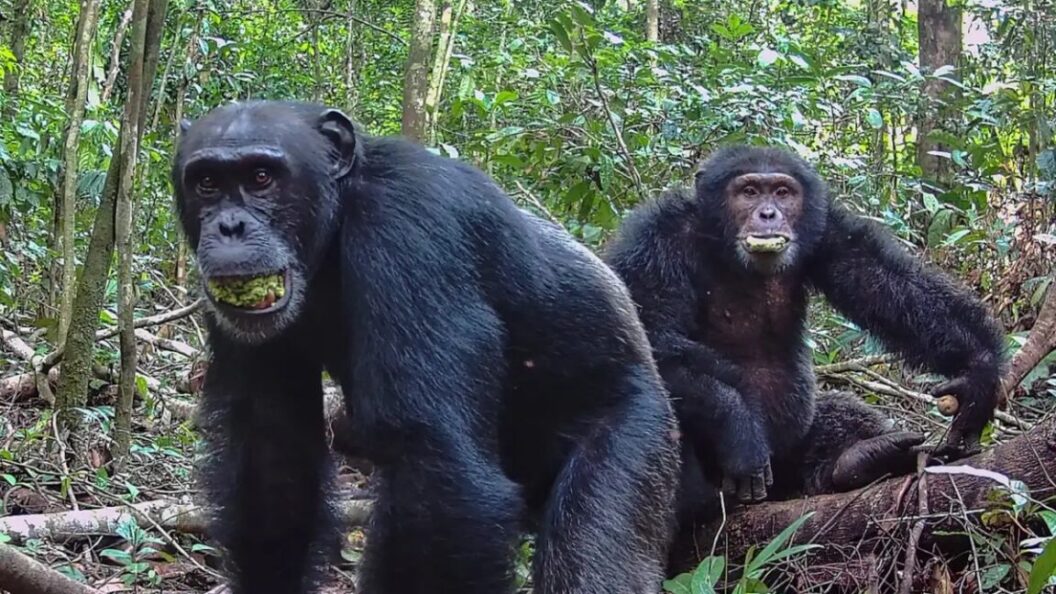Chimpanzees and Their Alcoholic Diet: Insights from New Research
Introduction to Alcohol Consumption in Wild Chimpanzees
Recent studies have unveiled fascinating insights into the dietary habits of wild chimpanzees, specifically regarding their consumption of fermented fruit. This research, conducted at two key locations—the Ngogo Chimpanzee Project in Uganda and the Tai National Park in Ivory Coast—reveals that chimpanzees may consume nearly two alcoholic drinks’ worth of ethanol daily, raising intriguing questions about their behavior and evolution.
Ethanol Content in Chimpanzee Diet
The study involved meticulous collection and analysis of fallen fruit samples consumed by chimpanzees in the two locations. Researchers found that the fruit at these sites contained ethanol concentrations of 0.32% in Uganda and 0.31% in Ivory Coast. While these percentages might seem negligible, the sheer quantity of fruit consumed—estimated to be 5 to 10% of their body weight, approximately 40 kilograms daily—means chimps are likely ingesting significant amounts of ethanol. The authors highlight that the most frequently consumed fruits had the highest ethanol content, suggesting a potential preference among the chimpanzees.
Significance of the Findings
The lead researcher, Dudley, remarked, "If the chimps are randomly sampling ripe fruit, then that’s going to be their average consumption rate, independent of any preference for ethanol." He speculated that the actual ethanol ingestion could be higher if chimpanzees preferentially select riper and sweeter fruits. This aligns with earlier research showing that some primates actively seek out alcoholic nectar.
Co-author Aleksey Maro, a graduate student at UC Berkeley, emphasized the evolutionary implications of these findings. “Our findings imply that our ancestors were similarly chronically exposed to dietary alcohol,” he stated, connecting the study to the "drunken monkey hypothesis." This theory posits that early human ancestors might have developed a taste for alcohol due to their long history of consuming fruit sugars rich in ethanol.
Evolutionary Insights and Social Behavior
Primatologist Catherine Hobaiter from the University of St. Andrews, who was not part of the study, noted, "What we’re realizing from this work is that our relationship with alcohol goes deep back into evolutionary time, probably about 30 million years." She suggested that for chimpanzees, sharing fermented fruit could play a role in social bonding, as groups gather on the forest floor to consume this common resource.
Future Research Directions
In the ongoing quest to unravel more about chimpanzees’ alcohol consumption, researchers plan to analyze urine samples to check for alcohol metabolites, which was previously demonstrated in spider monkeys. Maro dedicated his summer to this task, braving the elements—"sleeping in trees protected from constant rain by an umbrella"—to collect the necessary samples.
Conclusion: Implications for Understanding Human Behavior
The insights gained from this research do more than illuminate chimpanzee diets; they provide a deeper understanding of our own relationship with alcohol. By considering how long our evolutionary cousins have interacted with fermented foods, we gain context for human behavioral traits surrounding alcohol consumption. Understanding these trends could help clarify modern social habits and the innate attraction to alcoholic beverages that persists today.
In sum, as researchers continue to explore the intricacies of chimpanzees’ dietary choices, we are reminded of the complex ties that bind us to our primate relatives and the evolutionary forces that shape our behaviors even millions of years later.









